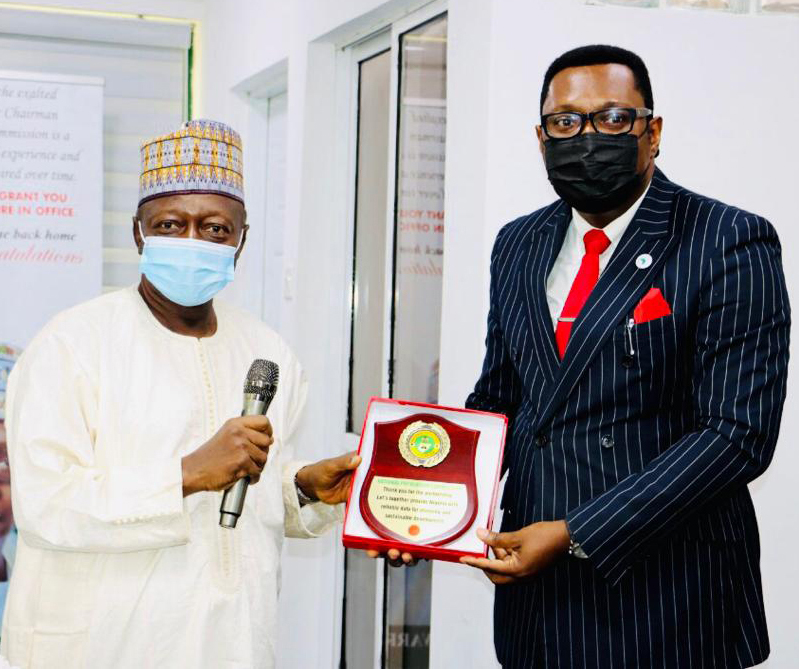Politics
25 Female Guber Candidates Unveil Agenda For 2023 Poll

Ahead of the 2023 general elections, about 25 fe-male governorship candidates contesting on the platform of various political parties in the states, on Monday, unveiled their agenda for the poll.
They spoke at a media engagement organised by Women Radio 91.7FM in Abuja.
The Tide source reports that the programme was supported by the UN Women and Canadian government.
The governorship candidate of Action People’s Party (APP) in Delta, Annabel Cosmos, said since the inception of democracy in 1999, the men had not done enough to give the state a facelift, hence, the need for women to take up the challenge.
“They say what a man can do, a woman can do it better.
“Women should not be left at the kitchen. The kitchen is not our place; we can govern a state if given the opportunity to serve,” she said.
She said if elected the governor, she would look into the educational, agricultural and health sectors, among others, with a view to transforming them.
The governorship candidate of Action Democratic Party (ADP) in Benue State, Madam Roseline Chenge, said if elected the governor, her plan was to industrialise the state and tackle the insecurity problem besetting it
“If you are familiar with Benue State, Benue needs industrialisation with local governments in focus.
“Benue needs security and as a mother, I have come out so that as an engineer, I can engage the most modern and sophisticated technology to provide security because my people are dying,” she said.
Chenge said she was ready to also ensure food security for the state by engaging in the modern system of agriculture.
She promised to manage the state’s account in a way that would give dividends of democracy to the people.
“The men have done well but women can do a better job,” she said.
The governorship candidate of the Action Alliance (AA) in Jigawa State, Hajia Binta Umar, said she was vying for the position to enable her to tackle the problems facing the women and youth in the state.
“The women are always at the receiving end anytime there is one challenge or the other, likewise our young people,” she said.
She said her government would ensure that the women and youth are empowered in the state. “We have a lot of resources and we are farmers too.
“We want to use all these resources to make life better than what it is now,” she said.
Social Democratic Party (SDP)’s governorship candidate for Abia State, Dr Ngozika Johnson-Ogbuneke, said though the state is 31 years old, there had been little or nothing to show for it.
“There are no infrastructure in Abia, nothing to give the people good life and when the youth of Nigeria protested back then in 2020, my heart was broken.
“When you look at what they said about the EndSARS, it applies to Abia State too. “I felt it is time to make a difference in my fatherland,” she said. According to her, “I urge the people of the state to vote for me.
“Don’t vote for me because I am a woman, vote for me because I am a capable woman. “I am an orthopaedic surgeon and also a human rights lawyer.
“I am coming to defend the rights of Abia people for quality education, good road; for the children to be well trained, for school teachers to have their salaries paid; pensioners have their gratuities and grants given to them and for Abia State to have an airport,” she said.
Johnson-Ogbuneke, who said she would make Abia to be an enviable state, said her plan was also to revamp agriculture and give a better healthcare system.
The Executive Director, Women Radio, Mrs Toun Sonaiya, said if 25 women can govern 25 states in the country, “peace will come back to Nigeria.”
According to her, if not for this programme, many do not know that we have about 25 candidates contesting for governorship elections.
She urged the media to always report the female candidates positively and give them more visibility.
“Please continue to report them until something happens. “Our women are ready and we should give them the support and encouragement,” Sonaiya urged
According to our source, the governorship candidates of the Allied People’s Movement (APM) in Kwara, Doborah Jaiyeola; APM candidate for Lagos State, Funmilayo Kupoluyi, were among others at the event.
Politics
Rivers Political Crisis: PANDEF Urges Restraint, Mutual Forbearance

Accordingg to the statement, the Board and National Executive Committee of PANDEF, noted with very grave concern the recent spate of political developments in Rivers State.
“Regrettably, these developments have now degenerated into the decision of the Rivers State House of Assembly to commence impeachment proceedings against the governor and deputy governor.
“This is a deeply disturbing situation that demands urgent attention in order to forestall further escalation and breakdown of law and order.
“This concern is heightened by the critical importance and strategic centrality of Rivers to the Niger Delta region and to the broader socio-political stability and economic wellbeing of Nigeria as a whole”, the statement said.
The Forum called on all parties involved in the resurgent political imbroglio to sheathe their swords and embrace peace.
“This should be guided by the principles of give-and-take, dialogue, tolerance, and political equanimity.
“All stakeholders must place paramount importance on peace, development and the welfare of the people of Rivers.
“We must now focus squarely on good governance and development of the state,” the Forum said.
PANDEF commended President Bola Tinubu, the leadership of the All Progressives Congress (APC), respected elders of Rivers State, and other well-meaning Nigerians for their previous and ongoing efforts aimed at restoring peace and stability in the state.
Politics
Wike’s LGAs Tour Violates Electoral Laws — Sara-Igbe

Speaking in an interview on Saturday, January 10, Chief Sara-Igbe alleged that the minister had flouted regulations governing the commencement of electioneering campaigns by moving from one local government area to another to galvanise political support.
According to him, the action amounted to a clear breach of electoral guidelines being carried out with a troubling sense of impunity that could undermine the rule of law.
“Wike has violated the electoral laws of campaigning by going from local government to local government to talk to the people. He travelled from one local government to another. As a result of his visits to local government areas, he has broken election regulations and continues to do all these things without fear of repercussions”, Chief Sara-Igbe said.
The remarks came as Chief Wike was set to round off a state-wide “thank-you” tour that covered all 23 local government areas of Rivers State.
Although the minister had described the tour as an appreciation visit following support for President Bola Tinubu in the 2023 general elections, critics say the engagements have assumed an overtly political character.
Observers note that during several stops, including recent visits to Andoni and Bonny local government areas, the minister rallied supporters across party lines under what he termed a “Rainbow Coalition,” a move widely interpreted as part of a broader political strategy.
During these engagements, Chief Wike was also reported to have made remarks perceived as a veiled challenge to the authority of Governor Siminalayi Fubara, while repeatedly referencing the 2027 elections and urging supporters to prepare to “correct the mistake” of 2023.
Chief Sara-Igbe warned that allowing such activities to continue unchecked could erode public confidence in Nigeria’s electoral process and called on relevant authorities to enforce existing laws without fear or favour.
Politics
EFCC Alleges Blackmail Plot By Opposition Politicians

The Commission, in a statement on Wednesday, claimed that there were plans by the same group to escalate a smear campaign against its Chairman, Ola Olukoyede, to frustrate ongoing investigations and prosecutions involving prominent individuals.
The statement endorsed by the agency’s spokesman, Mr Dele Oyewale, claimed that the action was intended to distract the Commission through unfounded allegations of political bias in the discharge of its duties.
The EFCC warned that it would not stand by and watch “those recruited into this ignoble enterprise” or allow any attempt to derail it from “the patriotic task of improving public accountability in Nigeria.”
The Commission made it clear that those recruited into this venture were under close watch, adding that it would not tolerate any attempt to distract it from the patriotic task of improving public accountability in Nigeria.
“The EFCC reiterates its non-political stance in all its activities. Facts on the ground clearly show that any political actor belonging to the ruling party or opposition party, with corruption baggage, has no hiding place from the operational radar and dynamics of the Commission.
“As a matter of fact, several strong members of the ruling and opposition parties are either facing trial before the courts or being investigated by the Commission.
“It is needful that Nigerians appreciate the fact that the Commission is keeping faith with its Establishment Act in all its operations.
“Therefore, the Commission reiterates its commitment to justice, without fear or favour, in the fulfilment of its mandate,” the statement pointed out.
-

 Sports3 days ago
Sports3 days agoTinubu Lauds Super Eagles’ after AFCON bronze triumph
-

 Sports3 days ago
Sports3 days agoFulham Manager Eager To Receive Iwobi, Others
-

 Sports3 days ago
Sports3 days agoAFCON: Lookman gives Nigeria third place
-

 Sports3 days ago
Sports3 days ago“Mikel’s Influence Prevent Some Players Invitation To S’Eagles Camp”
-

 Sports3 days ago
Sports3 days agoMan of The Match award Excites Nwabali
-

 Sports3 days ago
Sports3 days agoRemo, Ikorodu set for NPFL hearing, Today
-

 Sports3 days ago
Sports3 days agoPolice Games: LOC inspects facilities in Asaba
-

 Niger Delta3 days ago
Niger Delta3 days agoINC Polls: Ogoriba Pledges To Continuously Stand For N’Delta Rights … Picks Presidential Form

